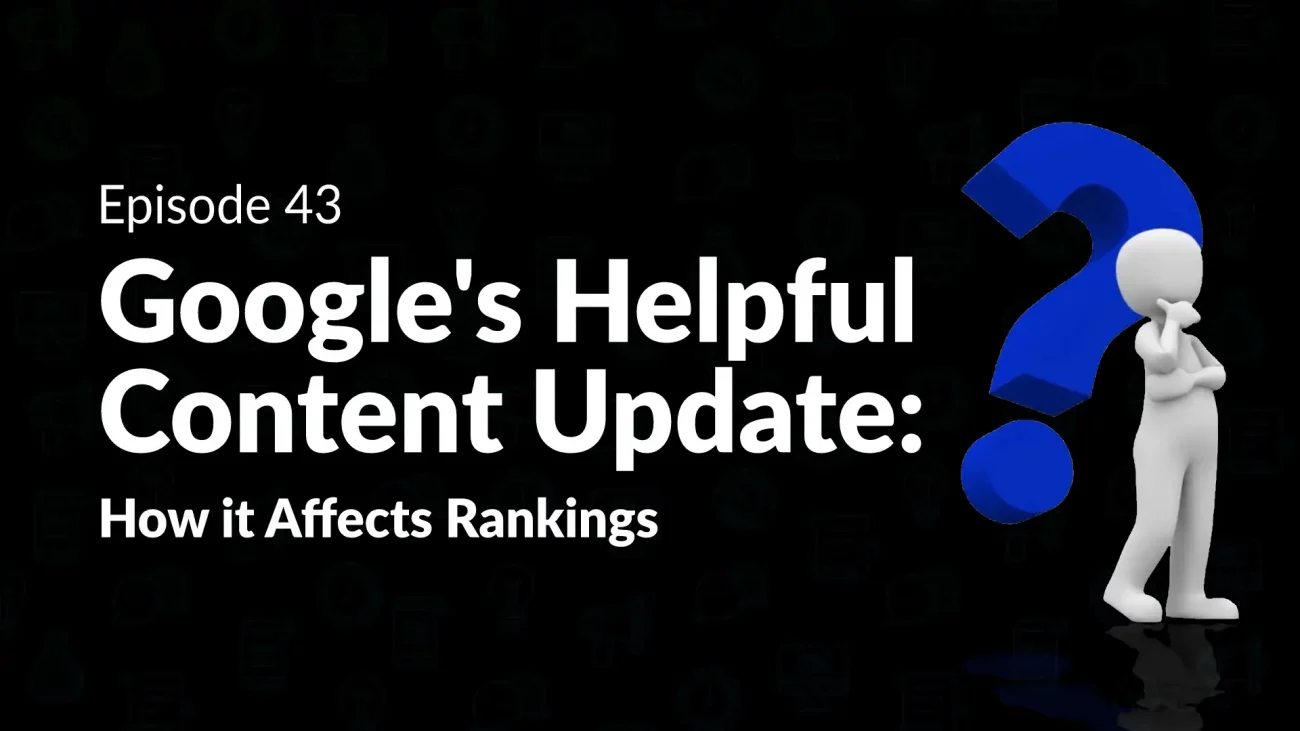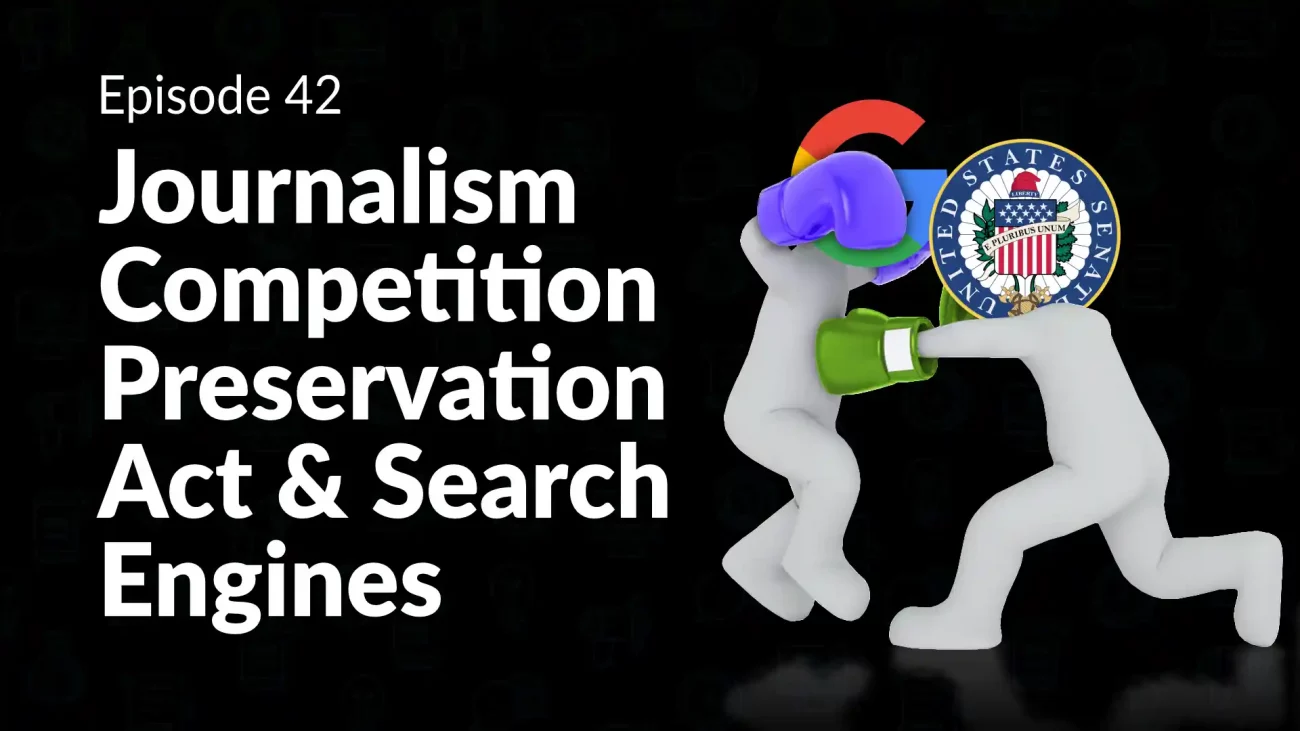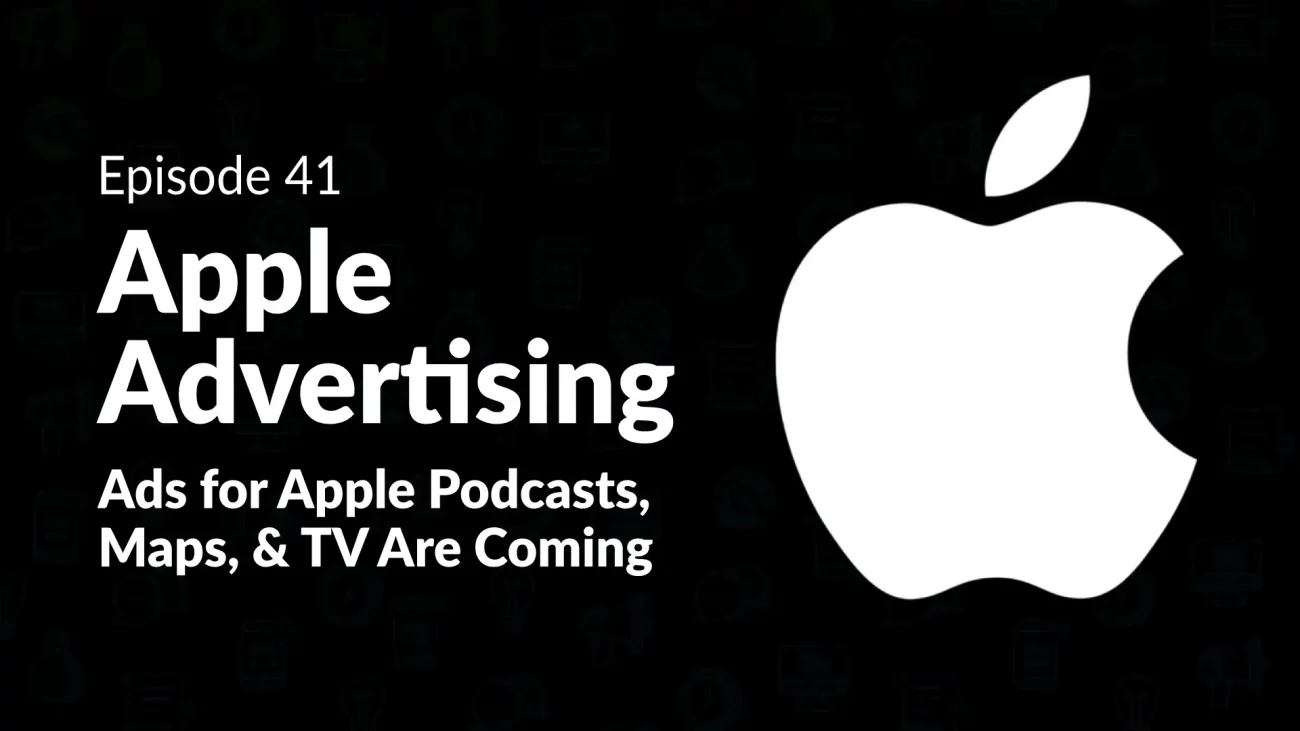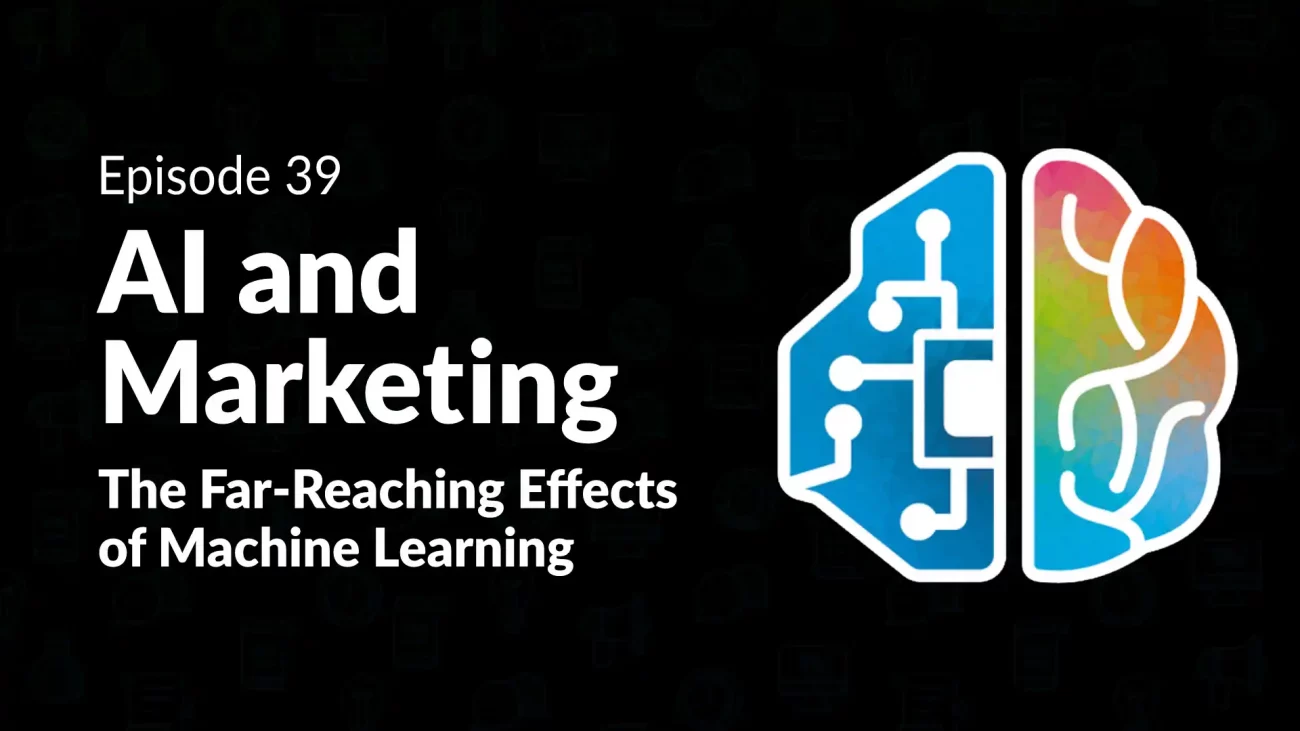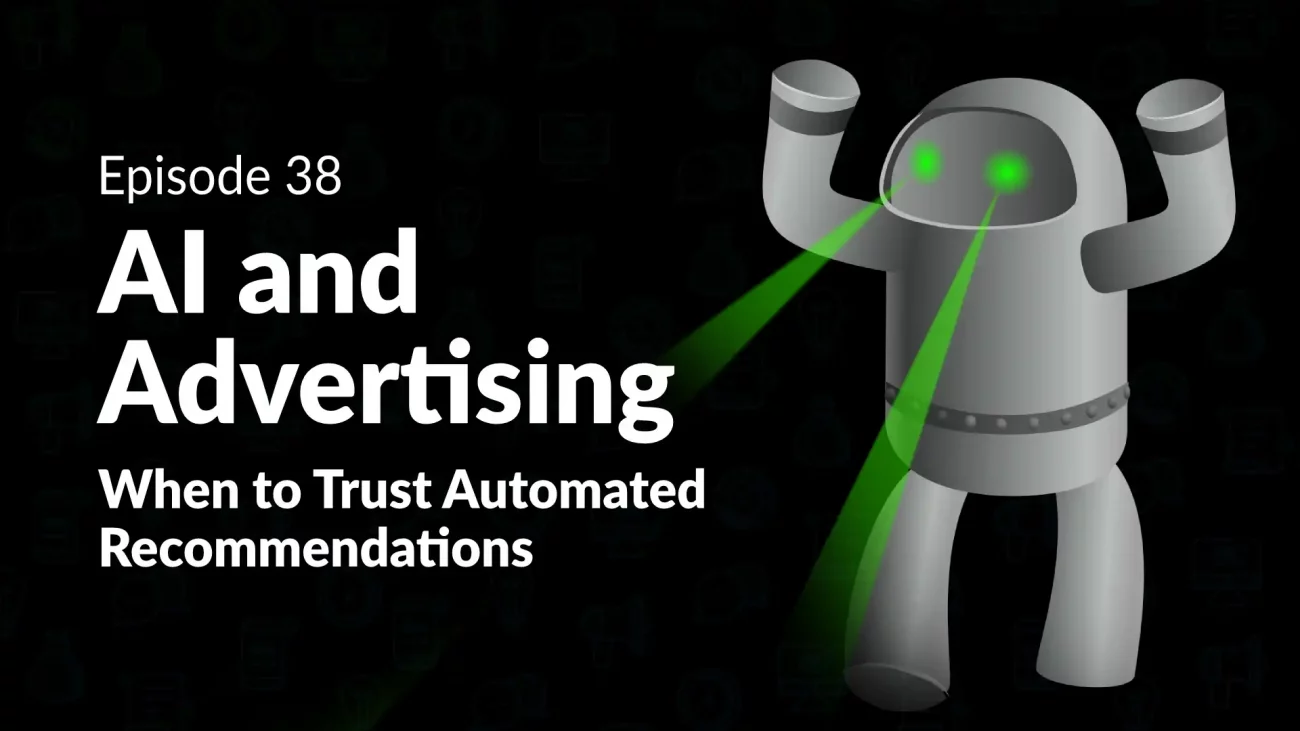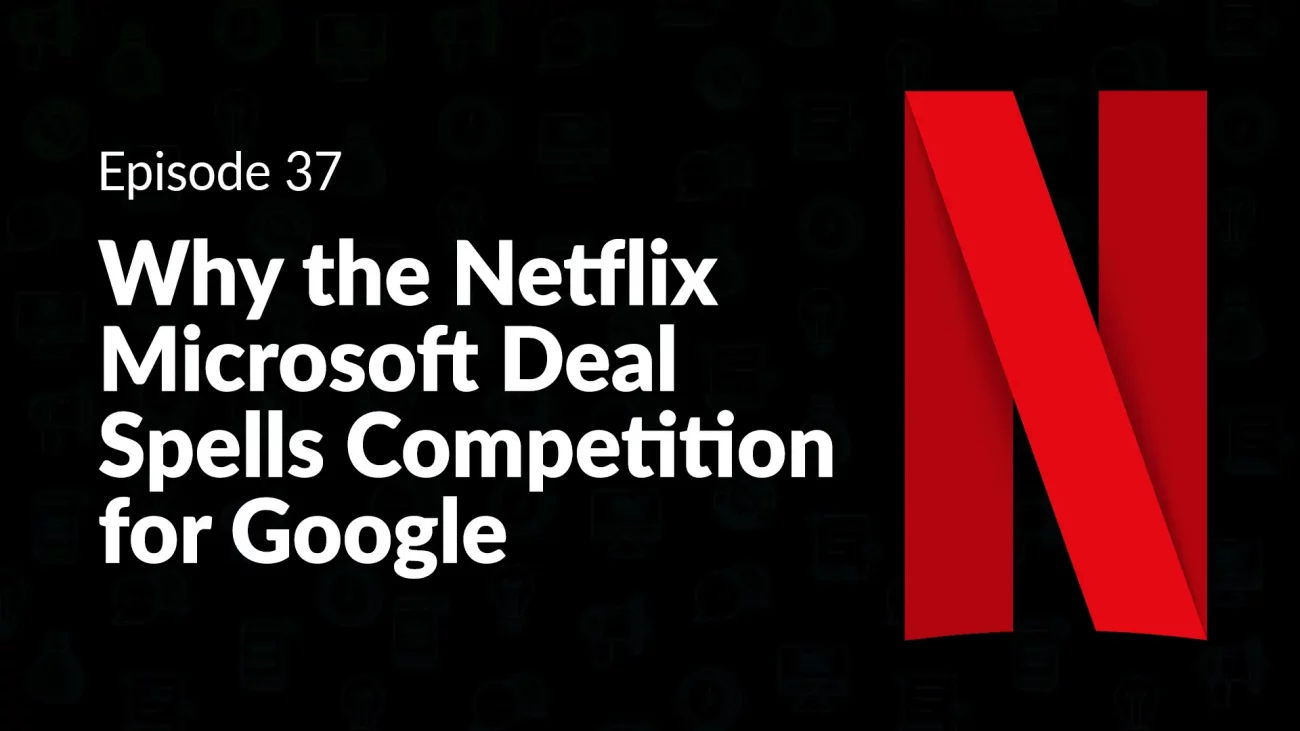Episode 40: Hiring a Digital Marketing Agency? Why RFPs Don’t Work
RFP or “Request for Proposal” is a process where companies or organizations open requests for bids to complete a project. This practice is not new, and like many old ideas, the RFP process may not work for everyone. When a project has a finite result, like the construction of a new building, using an RFP process makes perfect sense. However, an RFP will do little to qualify potential candidates when your project requires or could benefit from creative and critical thinking. This begs the question: how should you go about selecting the best digital marketing agency to work with for your projects? In marketing, clients do not have the same goals and needs. Your campaigns, content, and reporting should be tailored by your agency to your unique needs. Your agency should also offer opportunities for continuous improvement. The RFP process can highlight skill and cost, but it will likely fail at doing much more.
In this week’s Digital Marketing Mondays, Hans and Devin dive into why the RFP process alone will not help you find the right agency to partner with and what you should do to find the best match.
Transcription:
Devin:
You’re listening to Digital Marketing Mondays. Each week, we bring you new and exciting content from around the marketing industry and help give you, the marketer. insights into what’s happening. We’ll offer our advice and share some takeaways to help you develop better strategies for your marketing. Ideally, this will also help you improve your ROI as well. So with that, let’s tune into this week’s episode.
Hans:
Hey Devin, how are you today?
Devin:
I’m good, Hans, how about you?
Hans:
Not too bad. There’s been a topic on my mind that’s been kicking around. How do clients pick the best digital marketing agency to meet their needs? We’ve seen a lot of ways over the years, we’ve been in business 20 years now. I’ve seen a lot of people go through a lot of different gyrations to do bake-offs and stuff to find the agency that best meets their needs. One of my pet peeves is the RFP. If I was a client and I was looking for a new digital marketing agency, I would not issue an RFP. And the reason for that is that the RFP doesn’t really cover the essential pieces. It’s a shopping list of items with a price on it. That’s really what you get out of an RFP. Now, of course you do provide some references and things like that, but you got to do that anyway. I’ve got no problem with providing references.
Hans:
Let me dive into why that is and then maybe you can take it a little deeper. We have clients that are very detail oriented, in terms of their way of working with us. They want to know exactly what’s going on at the detail level, they want to have a lot of input into things like ad copy, where those ads are appearing, how we’re targeting those ads. They want a lot of input in that kind of stuff. They’re more the micromanager style, which is fine. They may have some knowledge of how these platforms work and there’s a certain way that they want things done. Conversely, we have clients where, and this is the other end of the spectrum. They go, “Look, I’ve got my business to run. You know how to do digital marketing, you do the digital marketing and just let us know how things are going and what you need from us.” They’re pretty hands off. And that manifests itself in a number of different ways.
Hans:
We find, for example, some of our reporting, the detail people, they might want detailed reports with lots and lots of data, and they might want them weekly. Whereas other people want a high-level report, and they want it monthly. They don’t want the detail, in fact, the detail just confuses them. So we don’t have one standard report that we issued to all our clients. We use a Chinese menu. We don’t reinvent the wheel each time, but we basically design the reporting around the needs of the client to meet those needs. That’s just one example of it. Maybe you can dive a little bit into some of the different styles of client that we deal with and how our approach to serving them differs. But I think that asking for a one size fits all and putting it out there with an RFP, I don’t think it’s going to really help you find the agency that’s a best fit for you.
Devin:
Sure. And I’ll tack onto that first by saying that RFPs, they’re conversed to the resume. You need something that effectively stands out or thinking about it this way: what’s something that you can write down on paper that will make you stand out from getting sorted out. The HR manager that’s sitting there sifting through a hundred resumes for a single job posting. What’s the one thing that’s going to get that HR manager to help pick yours out of the rest of the crowd. And certainly I think there’s a lot of favoritism with RFPs as there also is generally with hiring as well. Or there can be, especially with known connections or known contacts. To me, I don’t want to call the RFP process rigged. It seems awfully close. Maybe that’s what we’re skirting or beating around the bush here with, but the reality is RFPs, unless you are a big creative agency that gets to pitch these awesome creative concepts generally for free, or at cost, which by the way, they may get stolen. As we found out with Coinbase, for the creative agency for the 2021 Super Bowl.
Devin:
They took the creative agency’s idea without paying them for it and then they went off and produced it on their own. Big lawsuit turning out. So unless you’re in that caliber as a big creative agency, doing that type of work, the reality is, you as a digital marketing agency, and even as a client, you’re not going to get to see the flavor of the type of person or groups of people that you’re going to get to work with, whether it be an agency or a client. So I do think that’s worth mentioning at the outset. A little bit deeper down, what we find is that every client is so different, and the reason is the individuals within the teams. They may or may not have bosses, the CMOs typically, or even above that, the CEEOs that are trying to figure out and understand what are the things that are in marketing that are making it tick.
Devin:
And some of it may come down to the leadership style, but how hands-on or hands-off do they want to be, how pivotal it is within their marketing mix? So, if you’re doing all demand gen programs and they are absolutely what’s feeding your sales team, you better believe all eyes are going to be on that performance. And they’re probably going to want more data than other teams. And then I think the third item there is, the interest in the types of programs, or even I would say the scale of which these programs are operating as well. I think it can have a huge impact if you’re a small fish in a large pond, probably going to sneak by relatively unnoticed. But if you’re a big fish in a small pond, obviously, you’re going to be noticed. So all that to say, I, and I know Market Vantage is as well. We are big believers in this ability to be really sound partners and to customize and tailor solutions and services to meet the needs.
Devin:
And really at the end of the day, it’s funny; I think of agencies more as customer service companies with digital marketing chops, and your end goal as a service provider is not necessarily to give always the absolute 100% best results. Though, you can and you should on a digital marketing perspective. But really, the other thing is how can you be the best service provider to this particular client. That’s the question that you should be thinking about, if you’re an agency, or even if you’re on the client side, if you’re looking for an agency; how is that agency going to best serve me in my needs for digital marketing. And the rest will sort itself out. If they’re doing a great job, they do good service, they provide solutions that help showcase and elevate the marketing team; I think it’s a great pick, it’s a great solution. And the price obviously needs to be right too.
Hans:
So I got another piece to this just way back in my past. I once was an architecture student. If you’re an architect and you design a building, the idea is that you’re going to create what are called construction documents, which are a very precise specification down to the location of every outlet and light. It’s very precise. Now that’s something that you can put out to bid to a construction company, because whichever construction company you hire, that’s the building they’re going to build. And if you hired 10 different companies, all 10 times the building would come out looking like the same building at the end. Some might have some cost overruns, some might take more time to do it. There’re variations there that you can check on. But I think the RFP process is fairly good when it comes to something like that.
Hans:
In our line of work, the question is, how well do you think outside the box? If they’ve been running ads a certain way, and it’s working sort of meh and you want to really go, “Hey, here’s a different idea. Why don’t we take a different approach? We’re going to not build the building that you specified. We have a different way of housing the people you’re trying to house, or create the office space you’re trying to create, that’s going to be way better than what you had in mind.” And that’s really the creative process that goes on in an agency like ours that you can’t specify in an RFP. You’re not going to be able to define that. You can get it from reference checks and stuff like that. You can ask, “Do they give you what you need? Do you understand what they’re talking about?” A lot of times I hear from prospects who say, “I keep getting these reports that I don’t understand.” Or, “If I ask a question, they’re talking in tech and I don’t speak tech. So I don’t get the answers.”
Hans:
That’s really where the fit lies, because we do our best work when we work like a partner. It’s not just, you throw stuff over the wall to us and we get it done and that’s that. We work as a partner with our clients, and some clients need a lot of support. Some clients have actually a lot of talent in house, and they generally know their audience and their customer base better than we do. So if we can leverage that and then provide the other resource, we know the ad platforms better than they do. So there you go. There’s the meshing of the two sides. That’s really what we look for in a client, this sort of collaborative partnership.
Devin:
Absolutely. Absolutely. And I think, that final thread there is really intent. What’s the intent of somebody that either you’re looking to work with, or you’re looking to hire? We even have several clients ourselves that are reasonably, if not similarly, skilled within some of these ad platforms, but they still hire us. And you might think, why is that? That sounds like a stupid waste of money. But to them it’s not, because we bring a different level of strategy, and obviously we can help execute also. And we’re saving them time and money by doing so. So, there’s the element of understanding that intent, which again, you’re almost never going to get from an RFP.
Hans:
Yeah, exactly. All right, good one. I think it’s an interesting thing to consider, and it’s hard to find upfront who’s going to be a good fit. I think you got to talk to each other, you got to feel each other out, but that’s how you do it. It’s hiring a person. You don’t just look at the resume and go, “Okay, let’s hire this guy or let’s not hire this guy.” There’s always an interview that, or yet a series of interviews along with, “Hey, if you had this problem, how would you solve it?” That kind of stuff. And that’s really where you find out how the other person thinks. And I think that’s a great way to go through the process of finding an agency that’ll work for you. So thanks Devin. I think it’s interesting topic.
Devin:
Absolutely. Thanks Hans.
Devin:
Thank you so much for tuning in. We really appreciate you taking the time out of your busy day to engage with our content. Whether you’re watching on YouTube or subscribed on our podcast apps, we appreciate you taking the time. Make sure to leave a comment down below and let us know any feedback that you have for us. We’re always watching the comments and engaging in any way that we can. So if you find this content useful, also make sure to subscribe or give it a big thumbs up. We appreciate it. Thanks so much.




